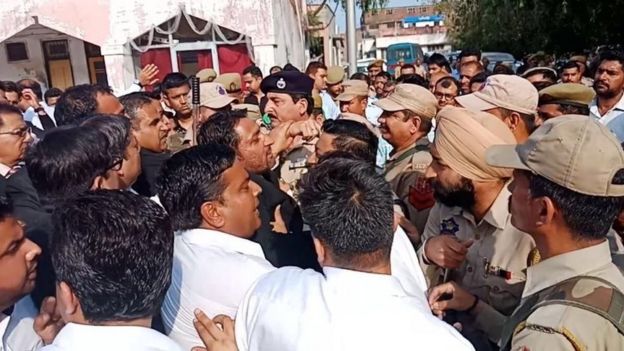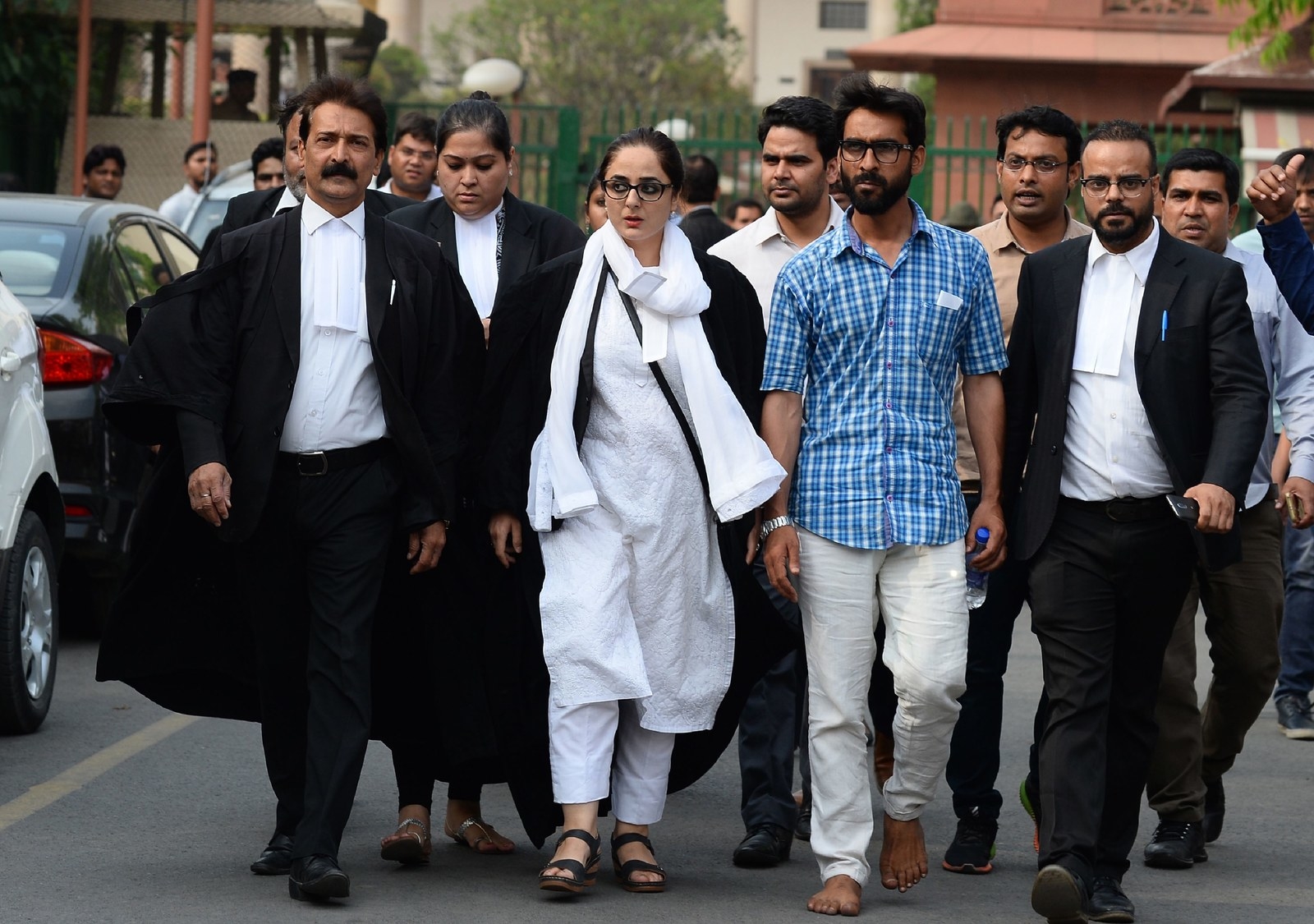The Horrors of Hate-Inspired Degeneracy
 |
| Asifa Bano was eight years old. Courtesy family of Asifa Bano |
"Action alert: Talib Hussain - who was arrested last week - has been tortured in Samba police station while on police remand, skull broken, rushed to hospital in Samba, he is a key witness in the Kathua gang rape-murder case."In India, official statistics indicate that incidents of rape are on the increase. This, in a country where rape is already endemic, violent and murderous. What is unclear is whether this is the result of more frequent reporting of what has always been a dreadful part of India's history, much of it associated with the class system, where higher-class Indians feel it is their right to rape and even murder lower-class Dalits, or whether these horrific events are simply being reported more frequently.
"This is unacceptable in a democracy."
Supreme Court lawyer Indira Jaising
"These are false cases filed against me [charges of domestic violence and attempted murder] because I am fighting for justice for the eight-year-old who was brutally raped and murdered."
"There is no truth to all these claims. I will continue to fight.”
Talib Hussain, key witness, Kathua rape case
Irrespective of speculation, those who are involved in efforts to advocate for more serious punishment for rapists state unequivocally that most rapes do not get officially reported. There is shame for the family involved in making it public, there is the threat of violence against those reporting, to restrain the impulse to search for justice. A number of truly horrifying cases of rape and murder have been highlighted where children are involved.
Official India is not enamoured of the international publicity and shame that is engendered by reports of these crimes against women and children. In rural areas where bathroom facilities are non-existent and women and girls wait until dark before heading to fields adjacent villagers to relieve themselves, they become victims of rapists, leading India to vow to build public toilets where privacy can be assured in protection of women and girls, not just for hygienic purposes.
Last year an eight-year-old Muslim girl, Asifa Bano was tortured, raped and killed by a group of Hindu men whose crime took place over a four-day period in a Hindu shrine, after abducting the child, sedating her and inflicting torture and rape before murdering the little girl. Three men have been sentenced to life in prison for the crime by an Indian court. Another three stood convicted of destroying evidence, earning them a 5-year sentence and a fine.
 |
| Lawyers in Jammu tried to stop police from entering the court to file a charge sheet Photo Sameer Yasir |
This dreadful event took place n the state of Jammu and Kashmir. A number of local members of the country's ruling party came out in protest against the charges levelled against the suspects. "Facts came to light despite hindrances", stated former state chief minister, Mehbooba Mufti who supported the investigative and legal team's success in conviction. Hindus revere animal life and eschew eating meat; Muslims butcher animals for human food.
The absurdity is that Hindu nationalists infuriated over Muslim butchering of 'sacred' animals by Hindu reckoning, doesn't hinder them from murdering a child to demonstrate their rage over killing animals. The two cultures have many areas of divergence, the majority Hindus taking umbrage over the Muslims' view of what is permissible in their religion, having no tolerance for a religious culture unlike their own; in effect each is intolerant to the other.
The viciously gruesome abduction, rape and murder was part of a politically motivated plot against nomadic Muslims. The child had been abducted from a village in the district of Kathua in the Hindu-majority area of Jammu. A concerted search for the little girl proved fruitless. Her body was eventually discovered days later in a forest, the very place where she was accustomed to tending to her family's livestock.
A subsequent investigation into the little girl's death revealed that she had been sedated, gang-raped and ultimately strangled with her own scarf, her head bashed with a rock. The child's agony was carried out over a four-day period in a small Hindu shrine. One juvenile and seven men were arrested. A retired government clerk, said to be the planner of the unspeakable atrocity, Sanji Ram, was charged in the plot recognized as part of a larger plan to drive Muslim nomads from the area.
 |
| Meanwhile, the team of police officers who investigated the case, as
well as a woman lawyer who appeared for the victim’s family, were
obstructed in Jammu by lawyers chanting pro-Hindu slogans. Deepika Singh
Rajawat — the lawyer who initially represented the victim's case in
court — was also threatened, doxxed, and warned not to appear in court.
Lawyer Deepika Singh Rajawat (center) at India's Supreme Court in New Delhi in April 2018. Sajjad Hussain / AFP / Getty Images
|
Three men -- Ram, a police officer, and another man -- were convicted of the rape and murder. A fourth man was acquitted, while three other police officers were found to have been involved in helping in the destruction of the crime's evidence. The youth involved is set to be tried singly. "We wanted to see them hanged till death", Sudam Hussain, a family member said, of the family's feeling that they failed to receive "complete justice".
At the time of the discovery of the child's horribly mangled body, outrage was justifiably manifested on the one hand, and then the news was consumed by rallies in support of the suspects, where two local Bharitiya Janata Party (BJP) nationalists took part in the protests. At one point, lawyers attempted to physically block police officers from filing the charges, claiming the targeting of Hindus was involved.
Within the courtroom, absent Asifa's immediate family members, where the verdicts were being read, no media was permitted a presence. A heavy security appearance that included armoured vehicles and police teams was fully manifested outside the courthouse.
 |
|
Students in Kashmir join a demonstration in April 2018 against the rape and murder of an 8-year-old girl.
Sopa Images / Getty Images |
Labels: Child Abduction, Hindu, India, Justice, Murder, Muslim, Rape
0 Comments:
Post a Comment
<< Home